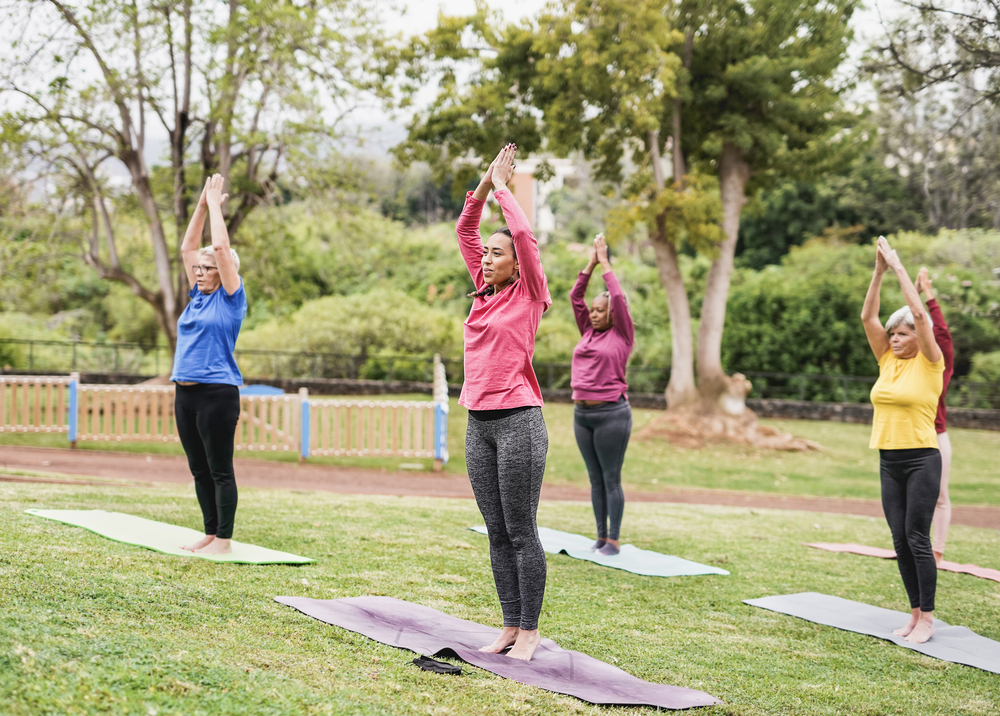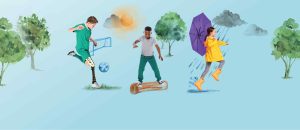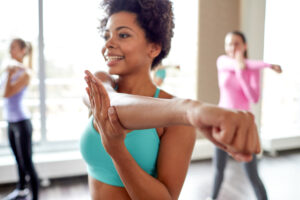Despite plenty of historical myths and misconceptions of females’ hormones and their effects, the truth is that these internal communicators, powered by our endocrine system, are incredible. The more we learn to work, play and get active with them, the more empowered we’ll be to take control of processes that take place in our bodies.
Get to know the “Divine Nine” hormones affected by exercise
These nine essential hormones are closely linked with physical activity, as getting active leads to important changes to their levels in your body.
1 & 2. Epinephrine & norepinephrine
Epinephrine and norepinephrine are hormones released when you’re under stress (think fight or flight response). They’re also released when you get active to increase blood flow throughout your body and trigger the conversion of the food you eat into the energy that you need to enjoy an active life!
Tip: Next time you feel an energy slump, try adding a short burst of physical activity, like a vigorous stair climb or some jumping jacks, to whatever you’re doing for a quick lift!
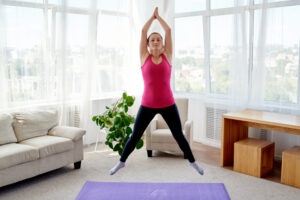
3. Insulin
Insulin is made by your pancreas when glucose (a sugar) enters your bloodstream. Levels of this hormone rise and fall according to what you eat. When you get active, your nervous system suppresses the release of insulin.
Tip: Avoid foods or drinks with lots of sugar (including sports drinks) before getting active because they can raise your insulin levels and promote storing glucose as glycogen rather than using it to fuel your movement. It’s also best to wait until your body has started sweating before having any sports drinks or energy gels. However, most people don’t even need these unless they’re doing intense cardio or endurance training for one hour or more.
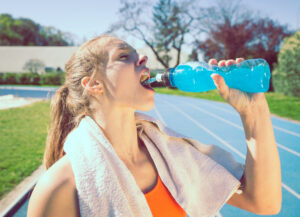 4. Cortisol
4. Cortisol
Cortisol is produced in response to stress, low blood sugar and exercise. This hormone supports energy metabolism during long periods of exercise by helping break down fat and protein to make the energy that helps fuel exercise.
Tip: Because cortisol is released when your body experiences too much physical stress or has not recovered enough from a previous workout, make sure you give yourself enough time to recover after intense exercise bouts to avoid spiking your cortisol levels.
5 & 6. Estrogen & progesterone
Here’s a more impressive power couple than “Bennifer”: estrogen and progesterone! These natural mood lifters make conception and pregnancy possible, and a healthy balance of the two promotes energy and sleep. When working together, estrogen and progesterone have natural antidepressant qualities.

Tip: Although it hasn’t been conclusively proven, it’s thought that excessive or compulsive exercise may lower fertility in women by reducing progesterone levels. So, make sure to listen to your body’s needs for rest and recovery.
7. Human growth hormone (HGH)
HGH is one of the most powerful hormones in our bodies. When present, it forces your body to draw energy from stored energy first, helping to increase your lean body mass so you can stay active and strong as you age while helping you look more youthful!
Tip: HGH is produced in bucket loads after high-intensity interval training (HIIT), so try to maximize short movement bouts throughout your day!
8. Testosterone
Contrary to popular belief, testosterone is not just a hormone produced by males – it’s actually made in both the testes and ovaries! Everyone needs it for their overall health because it helps build muscle and convert food into energy.
A healthy muscle-building session will lead to a rise in testosterone levels. Healthy levels of this hormone helps with energy levels, sex drive and stronger bones.
Fun fact: Healthy levels of testosterone released during physical activity can also slow the natural effects of aging!
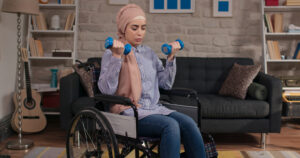
9. Serotonin
Physical activity that gets your heart pumping and muscles firing triggers the brain to release serotonin. Often called the body’s “feel-good hormone”, serotonin boosts your mood, appetite, digestion, memory and sex drive. It can even help promote a good night’s rest.
Tip: The next time you need motivation to get active, think of your good friend serotonin just waiting for you to make the move!
For more information on hormones affected by exercise and how physical activity can improve your daily life, speak to a health-care provider.


